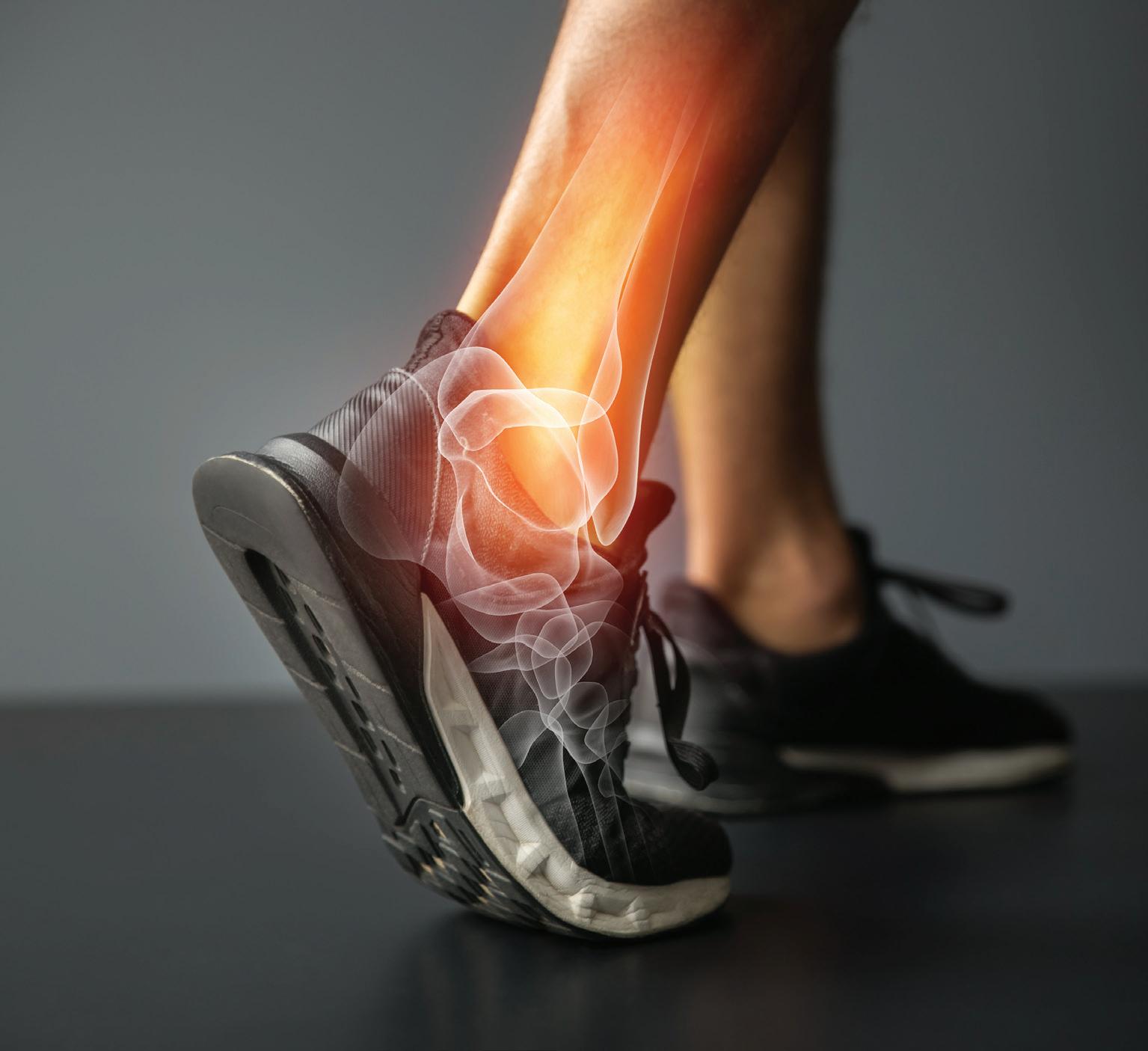
2 minute read
HELP FOR PAIN FROM PLANTAR FASCIITIS. Physical
HELP FOR PAIN FROM PLANTAR FASCIITIS
PHYSICAL THERAPY CAN HELP PATIENTS WALK COMFORTABLY AGAIN.
Plantar fasciitis is all too common and often causes pain in the heel. It’s caused by an inflammation of a thick band of tissue known as the plantar fascia, which runs along the bottom of the foot from the toes to the heel.
This connective tissue is a supporting structure for the arch of the foot that can be overstressed by many activities, including running, repetitive jumping or even walking much longer distances than usual.
Other contributing factors include being overweight, wearing shoes that are too flat or too high, or doing work that requires standing for long hours.
If you have sharp, stabbing heel pain, your doctor may order an MRI or an X-ray to check for arthritis or a fracture. If the diagnosis is plantar fasciitis, physical therapy can be an effective treatment.
A GOOD LOOK AT THE FOOT
“We will perform an initial evaluation to assess and uncover underlying deficits in strength, joint mobility or flexibility, not only at the foot and ankle, but in the individual as a whole,” says Linda Bernot, PT, OCS, CLT, a physical therapist at RWJ Rahway Fitness & Wellness at Carteret. “We will also look at how your feet perform during daily activities, such as walking, standing and squatting. An individualized treatment plan will be devised to best meet the patient’s need.”
If footwear is determined to be a contributing factor, the physical therapist can make the appropriate referral to a podiatrist for custom orthotics, or for an off-the-shelf insert to start, which will help control the alignment and function of the foot as you walk. The physical therapist may also suggest modifications for activities.
STEPS TOWARD HEALING
The duration of treatment can depend on many factors, including how long symptoms have persisted, how severe symptoms are and how compliant the patient is with the physical therapy. Typically, says Bernot, patients are seen two to three times per week for three to six weeks.
“With every physical therapy program, a home exercise program is prescribed for each patient,” Bernot says. “Patients are given detailed instructions for which exercises need to be performed at home on a regular basis. They should take what they have learned and ‘walk or run’ with it. Again, the use of appropriate footwear and keeping up with the exercise program that the patient learned in therapy is key.”
Bernot adds that the physical therapists at her site offer a range of treatments, including Graston Technique, a form of instrumentassisted soft tissue mobilization that enables clinicians to detect and treat restrictions caused by tissue dysfunction.
RWJUH RAHWAY
CAN HELP
To learn more about physical therapy at RWJ Rahway Fitness & Wellness at 2120 Lamberts Mill Road in Scotch Plains, call 908.389.5400. To learn about physical therapy at RWJ Rahway Fitness & Wellness at 60 Cooke Avenue in Carteret, call 732.969.8030. To learn about physical therapy at RWJUH Rahway, call 732.499.6012.










